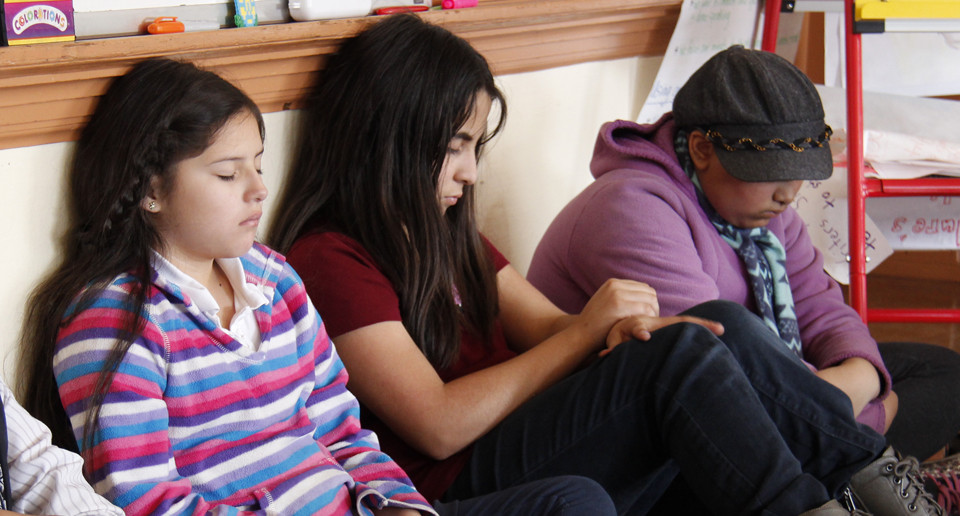As awareness grows about the importance of cultivating social and emotional well-being as a means to greater overall health, efforts to engage schools in addressing these needs is gaining momentum. One such school in San Francisco is showing how a focus on meditation, mentoring and mental health services is giving students the support they need.
With support from Kaiser Permanente Thriving Schools, students at John Muir Elementary School are participating in Quiet Time twice a day as a way to check in with their emotions. They’re also getting help from caring mental health professions who help the students navigate their emotions and challenges in school, giving them tools that will serve them throughout life.
Examples like this underscore the extent to which these skills, taught at an early age, cultivate emotional intelligence in young people, helping them to manage their emotions in ways that strengthen their relationships with others and their resilience in challenging times. Many of us already understand the importance of supporting students in their physical well-being through nutrition and healthier school breakfasts and lunches, as well as access to plenty of play and physical activity throughout the day. But the “mind, body, spirit” equation of health and wellness requires us to pay equal attention to the psychological and spiritual dimensions of well-being.
“Learning to channel attention to productive tasks, to sustain motivation when work becomes demanding, and to handle the frustrations of sharing, learning, and communicating with peers are skills that depend on the ability to understand and manage emotions. These are competencies that children and adolescents learn alongside more traditionally academic ones. Demands for these types of interpersonal, intrapersonal, and problem-solving skills increase as students progress through the school years.”
~ Patricia C. Broderick, PhD, Learning to BREATHE: A Mindfulness Curriculum for Adolescents to Cultivate Emotion Regulation, Attention, and Performance
We invite you to read more about how mindfulness is helping John Muir Elementary School. Or check out a recent story from MindShift on The Benefits of Helping Preschoolers Understand and Discuss Their Emotions to see how this kind of support is helping the very youngest students among us.




